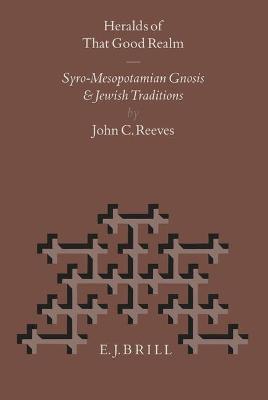Nag Hammadi and Manichaean Studies
1 primary work
Book 41
This volume examines the transmission of biblical pseudepigraphic literature and motifs from their largely Jewish cultural contexts in Palestine to developing gnostic milieux of Syria and Mesopotamia, particularly that one lying behind the birth and growth of Manichaeism. It surveys biblical pseudepigraphic literary activity in the late antique Near East, devoting special attention to revelatory works attributed to the five biblical forefathers who are cited in the Cologne Mani Codex: Adam, Seth, Enosh, Shem, and Enoch.
The author provides a philological, literary, and religio-historical analysis of each of the five pseudepigraphic citations contained in the Codex, and offers hypotheses regarding the original provenance of each citation and the means by which these traditions have been adapted to their present context.
This study is an important contribution to the scholarly reassessment of the roles played by Second Temple Judaism, Jewish Christian sectarianism, and classical gnosis in the formulation and development of Syro-Mesopotamian religious currents.
The author provides a philological, literary, and religio-historical analysis of each of the five pseudepigraphic citations contained in the Codex, and offers hypotheses regarding the original provenance of each citation and the means by which these traditions have been adapted to their present context.
This study is an important contribution to the scholarly reassessment of the roles played by Second Temple Judaism, Jewish Christian sectarianism, and classical gnosis in the formulation and development of Syro-Mesopotamian religious currents.
